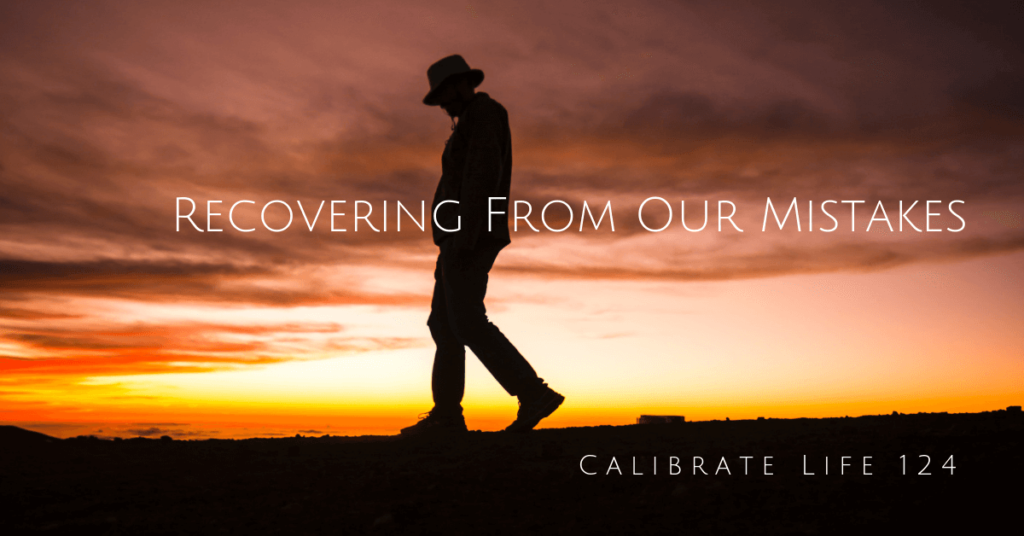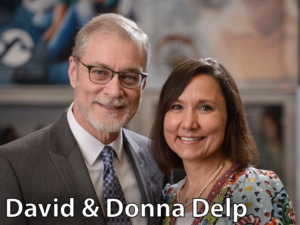Podcast: Play in new window | Download

I’ve made a lot of mistakes in every area of my life, but it’s not whether or not you make mistakes, because you will, its how you handle them and recover from them. In this episode we talk about a few of the mistakes we’ve made as leaders, and what we learned from them.
Continue to read the episode notes…
Recovering From Our Mistakes
(These are notes for a podcast, so if you want to hear the stories, anecdotes, and details, you will need to listen to the audio of the podcast.)
A mistake is a misguided action or judgment. It is being wrong about something. In the moment you may think you are right, but after reflection, evaluation, and input you realize you were wrong.
Following are some very practical pointers we’ve learned about recovering from mistakes.
Don’t Try to Justify a Wrong Action, But Understand It and Grow from It
My tendency is to make excuses when I make a mistake. My pride causes me to want to explain why I had a lapse in judgement or made the wrong call on something.
- Explanations are helpful in helping those affected by our mistake to understand our heart and our reasoning.
- Excuses seek to shift blame from myself to the circumstances.
Give explanations, don’t make excuses.
When we understand why we made a mistake, we can grow from the experience and make modifications and adjustments to prevent it from happening again or to give ourselves a better chance next time.
Here’s some of my number one reasons for making mistakes:
- My judgement was impaired because I was tired. Spiritual, emotional, intellectual, and physical fatigue will set you up for making decisions and taking actions you may regret when you regain your perspective.
- I based my judgement on only one side of a story or situation.
- I did not take the time to listen and understand the full situation, either because I was in a hurry, or because I was sure I was right — only to discover I was wrong.
- Inexperience. I simply faced a new situation and did my best to navigate it.
Admit the Mistake, Own it, and Make it Right
One of the most powerful things we can model as a spiritual leader is admitting we were wrong about something and apologizing. This doubly applies to our children. Those following our leadership usually know when we’ve made a mistake, and to deny it or minimize it instead of owning it simply diminishes our influence.
Leadership and parenting requires us to model. To show the way. When we teach those we lead how to appropriately grow through their mistakes, we equip them with essential life and leadership tools.
Responding Inappropriately to Someone Else’s Failure is Your Mistake, and You Have to Own It
The first greatest leadership challenge I faced started with me responding in the wrong way to someone else’s failure. I learned a valuable lesson: Your opponent in a situation may be 100% in the wrong, but if you respond inappropriately as the leader, then you still have to own your mistake in the matter. This can slow down dealing with an otherwise “clean” conflict.
We don’t have time to write the narrative on the story we’ve used to illustrate this point… but… it is in the audio of the podcast 🙂
You Cannot be Afraid of Mistakes
This is the number one reason we have to appropriately deal with mistakes. If we know how to recover from miscalculations, misjudgments, and mistakes, then we will not be afraid to take action. Fear paralyzes and causes us to over analyze, play it safe, and accomplish little.
Calculated risks are an important part of leadership. Some risks will succeed and some will fail. Success is never guaranteed.
We’ve taken a big risk, stepping out to change the entire course and direction of our lives. Our experience and our spirituality have informed this risk. If this risk does not yield the result we hoped for, was our decision to take this path a mistake? If we fail in this endeavor was it just one big mistake? I’m going to say “no,” we believe that however our great adventure turns out, it was not a mistake, it was a part of our journey toward something bigger than us, something God prepared for us.
You see, we trust God, that in committing our ways to him, he will guide us and perfect his work in us. Sometimes we learn new things that would have changed some previous decisions, but we do not have the luxury of time travel.
When something fails it could be considered a mistake. If the risk or significant action was a mistake, then own it, recover from it, and move on. But don’t be too quick to classify things as a mistake that did not turn out as you desired.
We may make mistakes on this journey. We may come to feel in hindsight that another path would have been better, but since we cannot predict the future, to diligently choose a path may be a risk, but we are not going to see it as a mistake if the results are not all we hoped for.
So then, How Can We Minimize Mistakes?
- If you are spiritually, emotionally, intellectually, or physically depleted, you are at high risk. Pull back, guard your actions, and delay decision making.
- Do not presume or assume you have all the information. Ask and listen.
- Do not make a big deal out of something that isn’t. Over reacting, for whatever reason, leads to mistakes.
- Slow down, calculate, get input. How much input is too much input? You should be able to make decisions with about 70% of the information at hand, if it gets much lower than that then there needs to be a supporting factor (i.e. life experience, informed input, collaborative decision making, etc.)
Finally
Not being afraid to make mistakes is a necessary leadership quality. You have to learn to do mistakes well, to recover from them, and to model the way in owning your mistakes.



